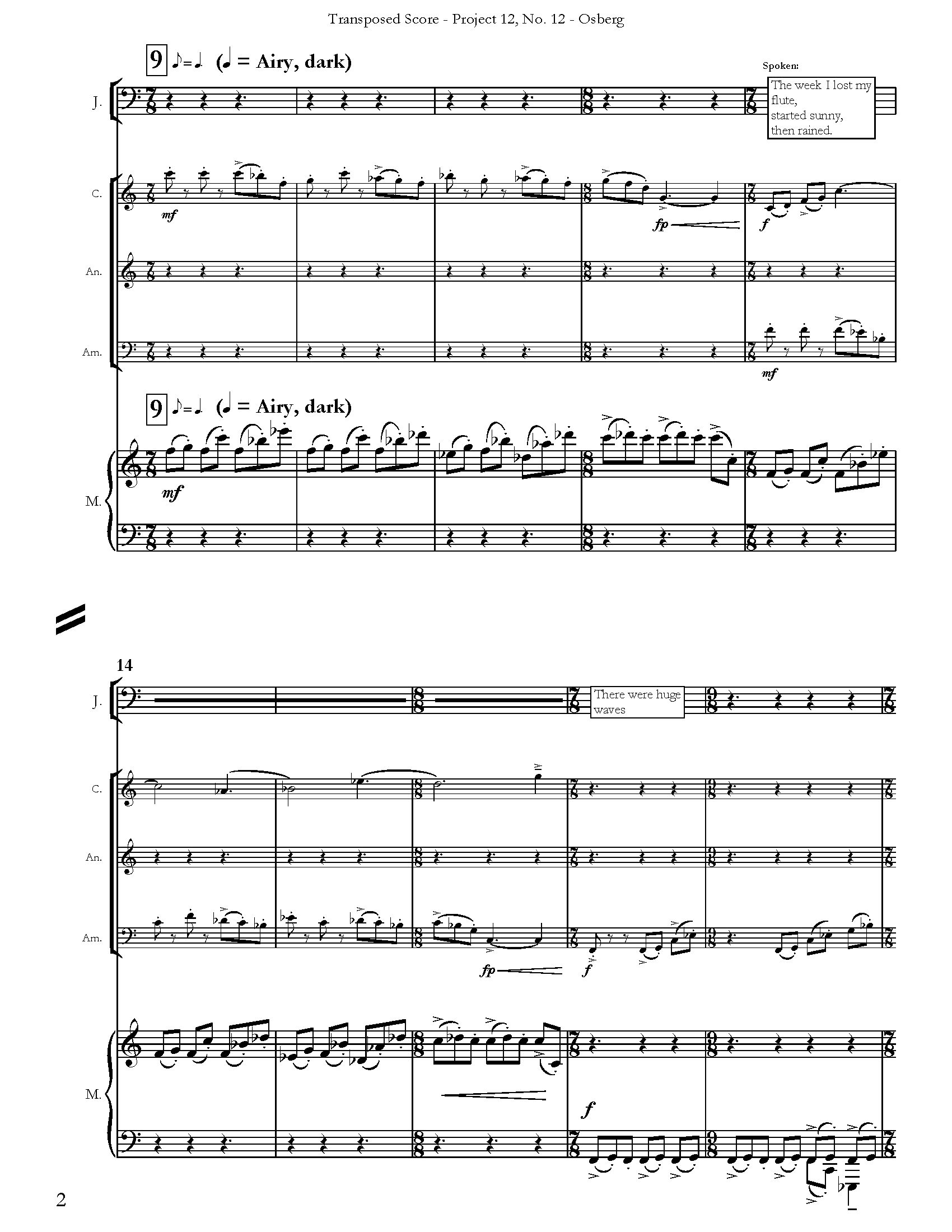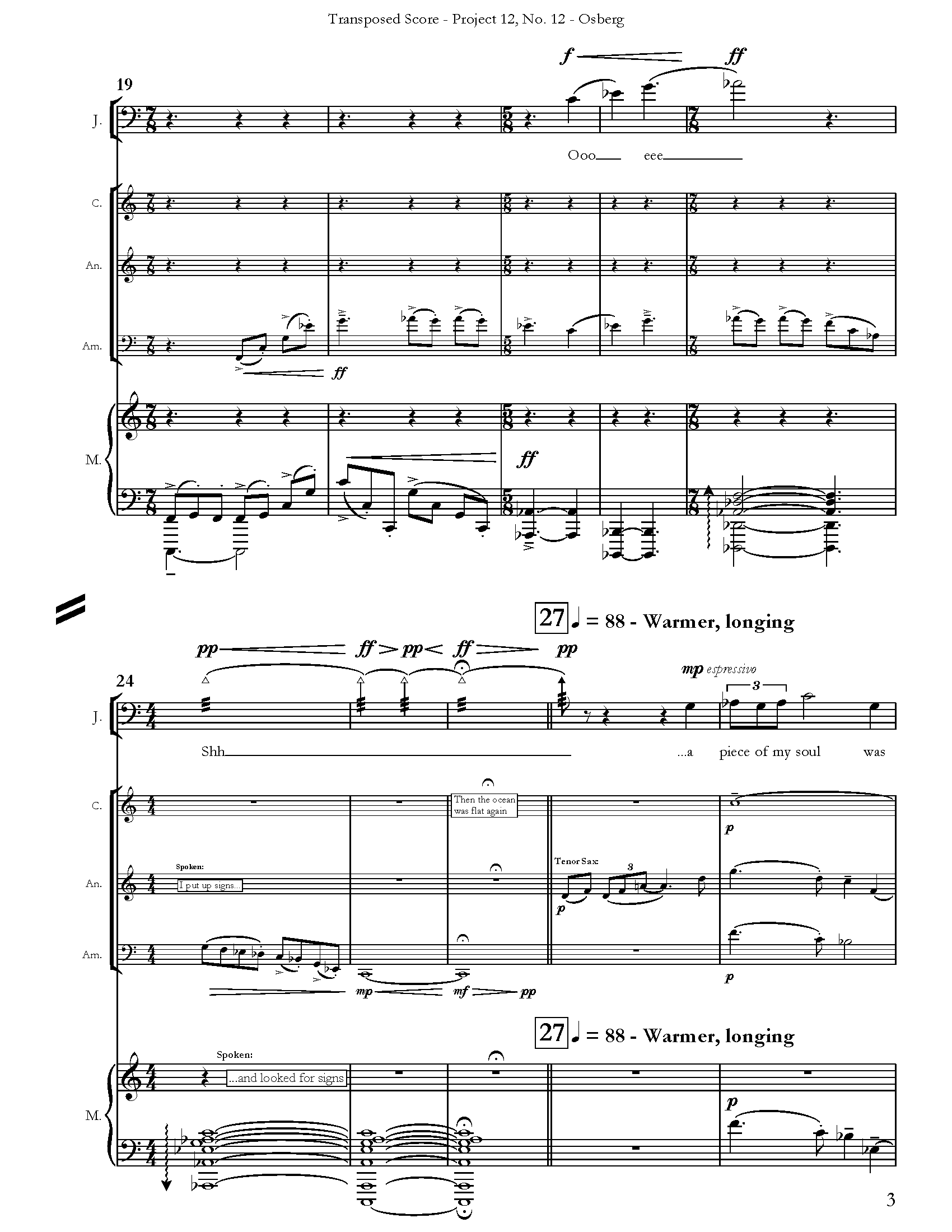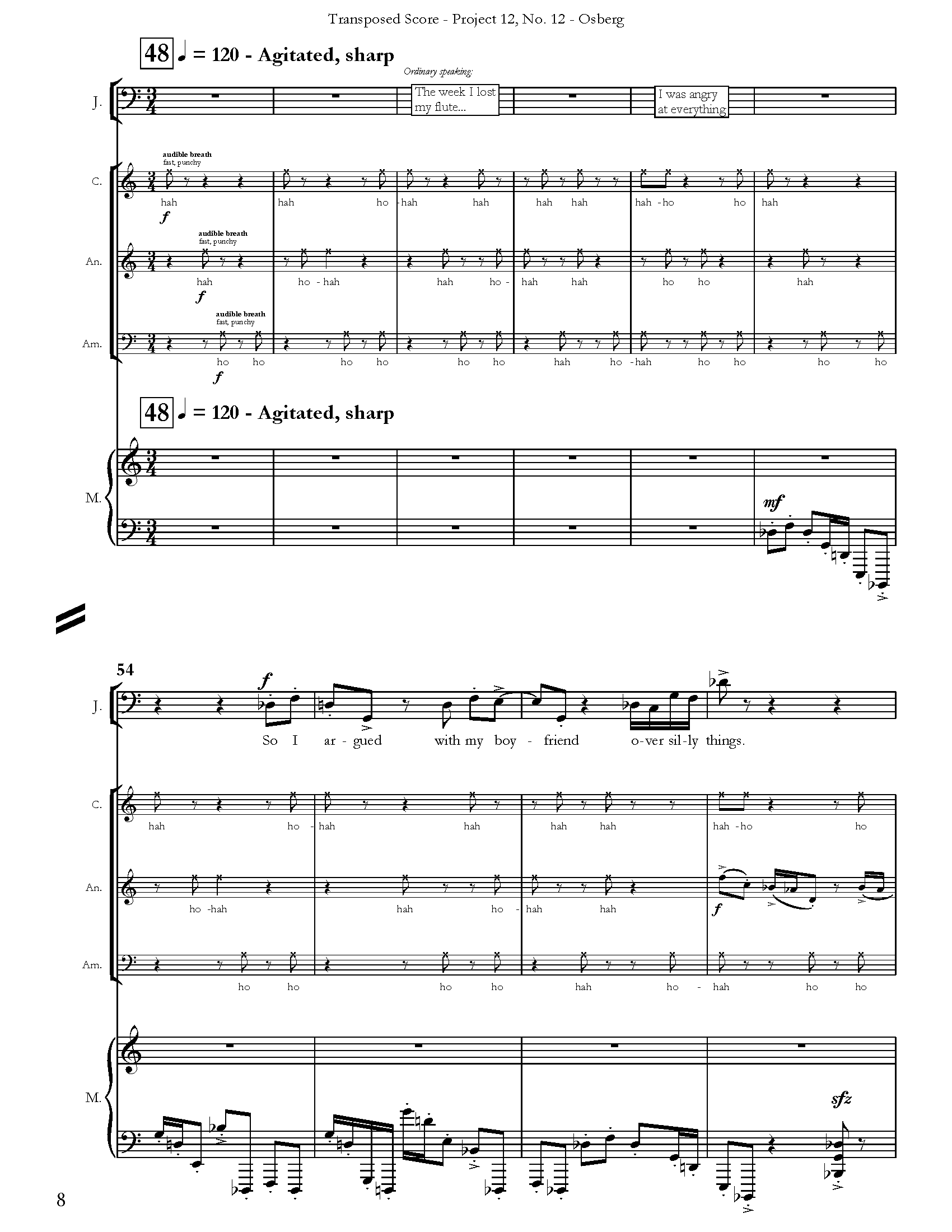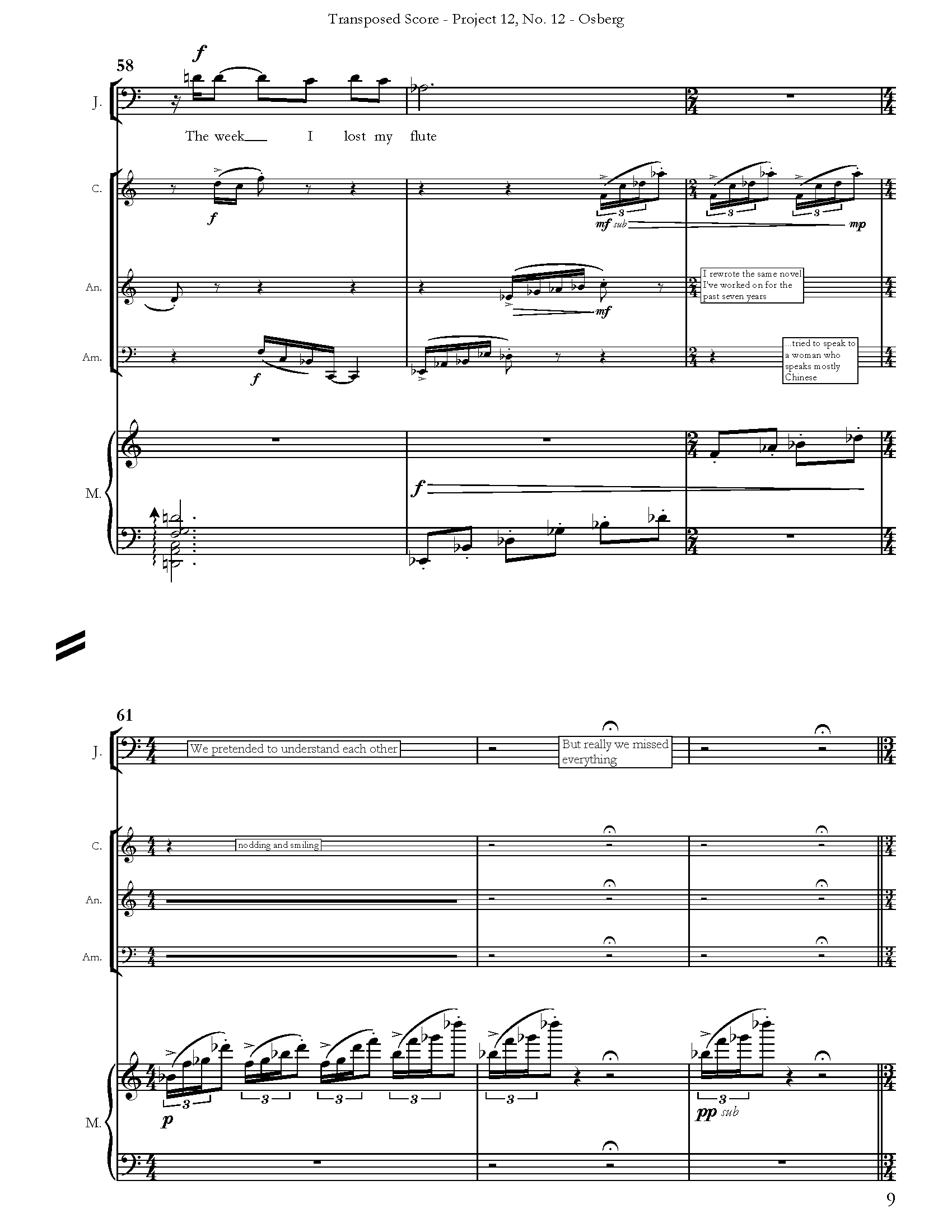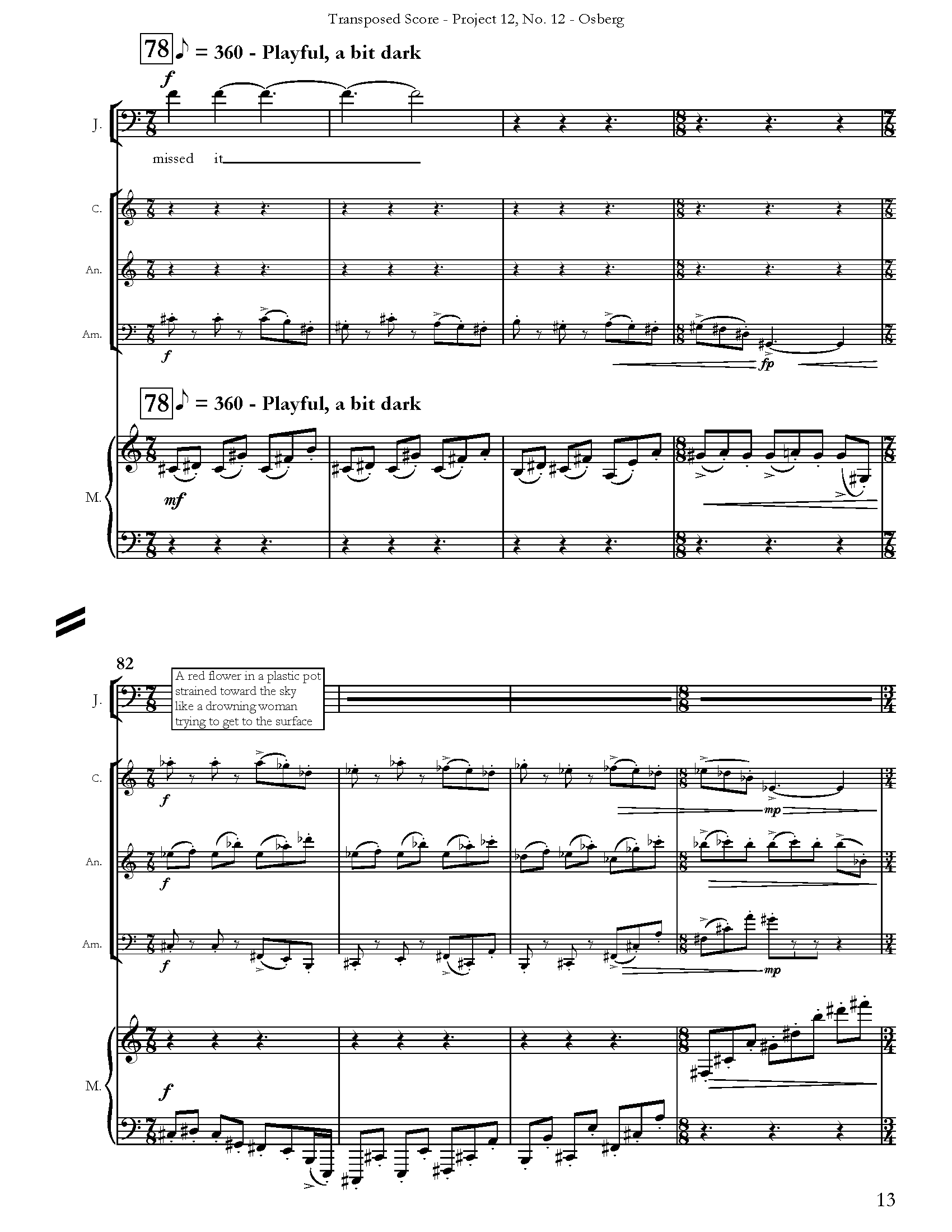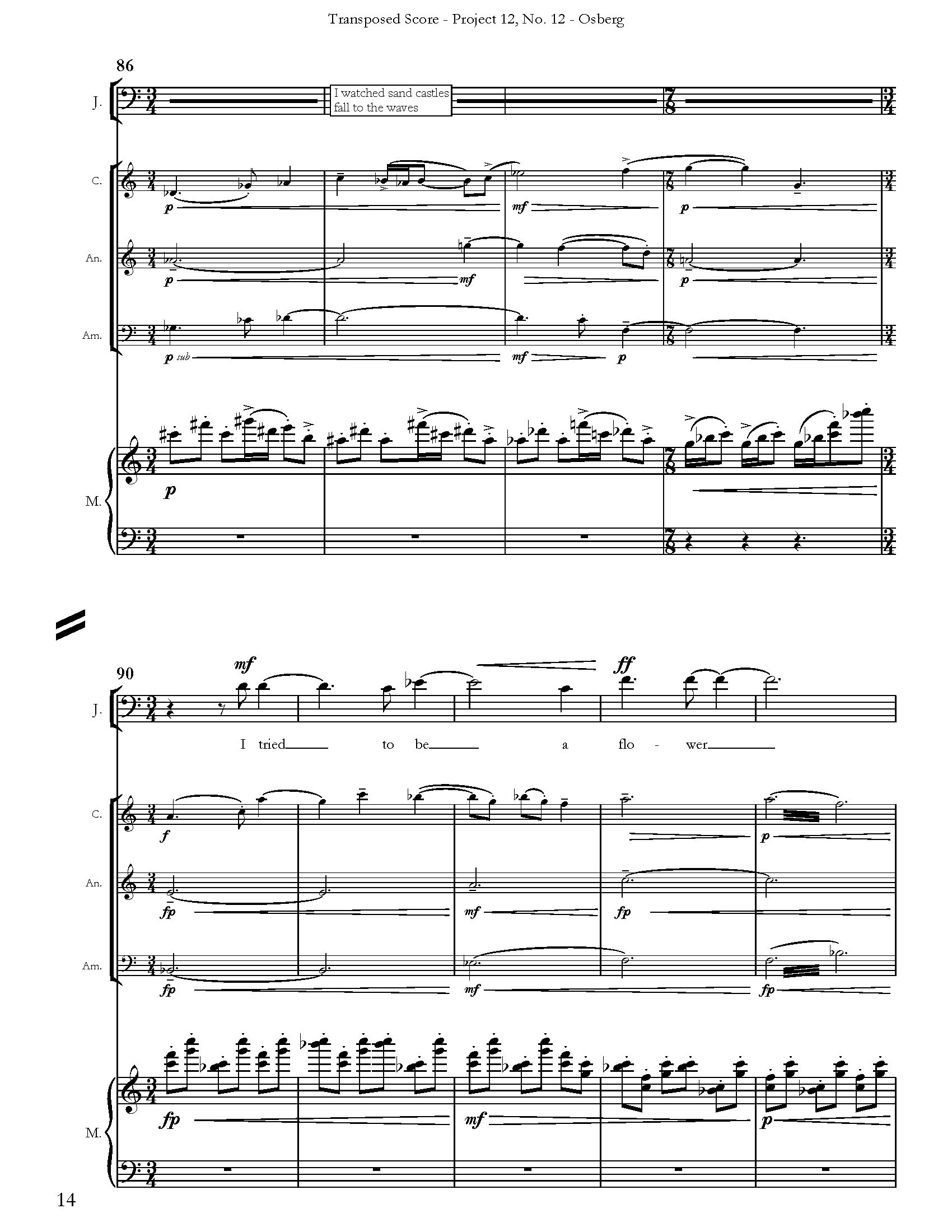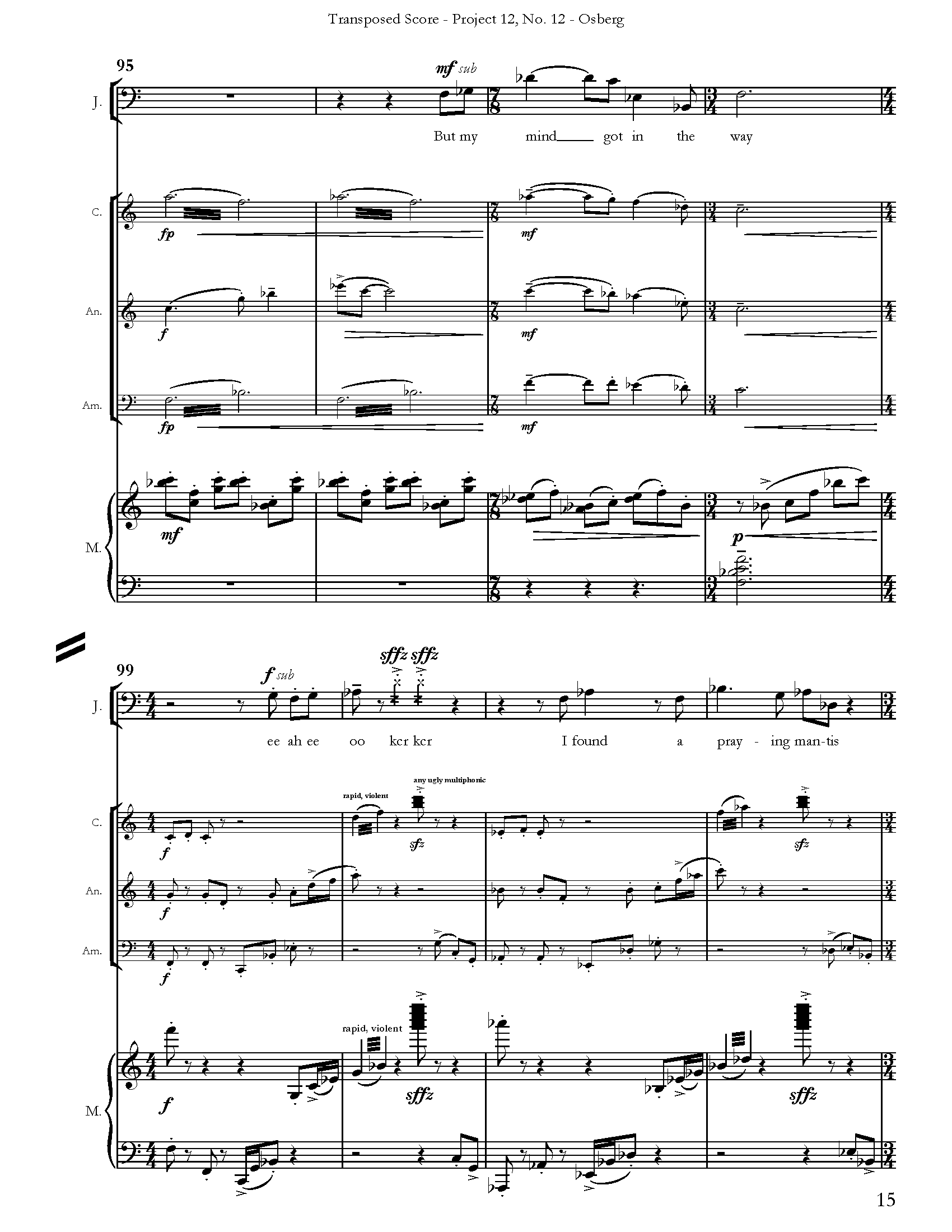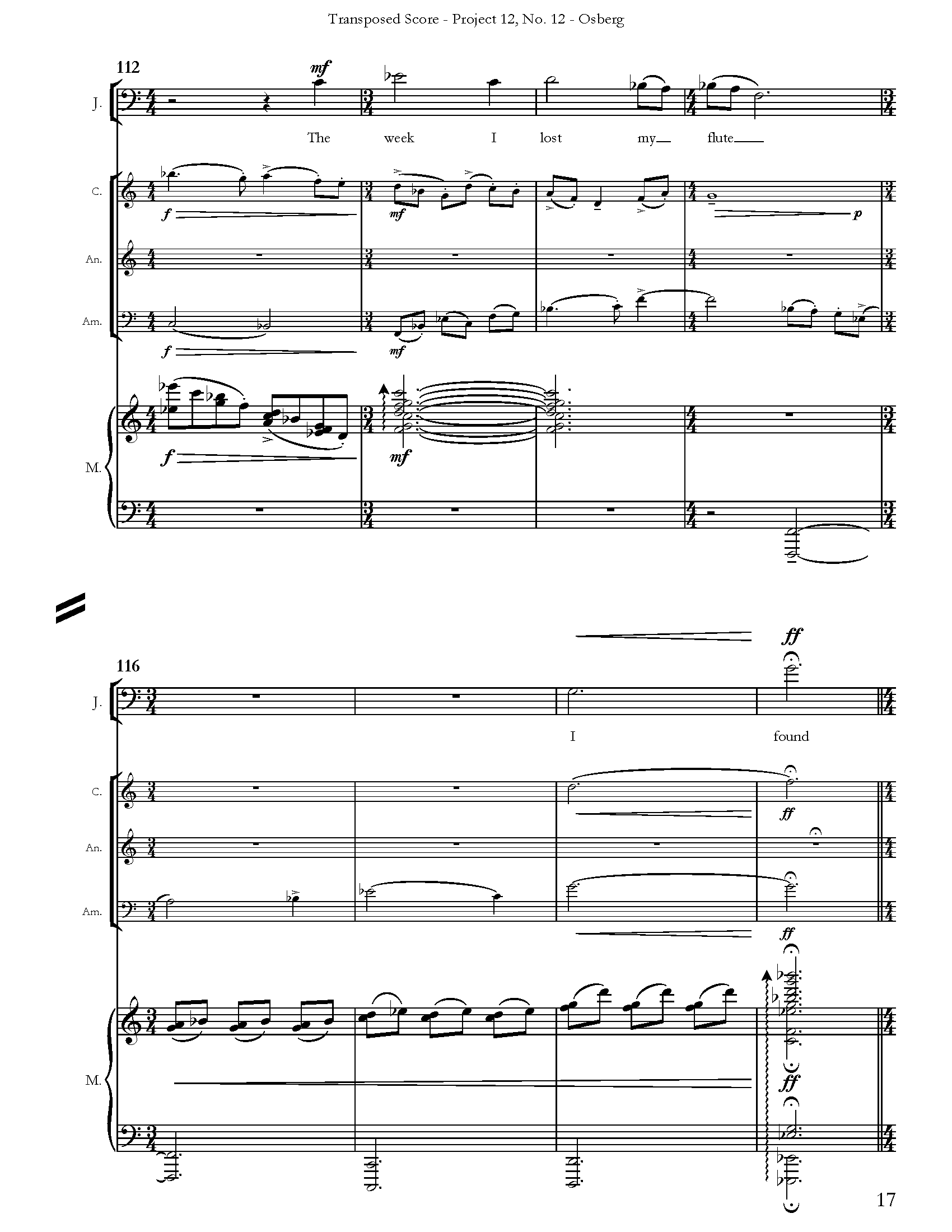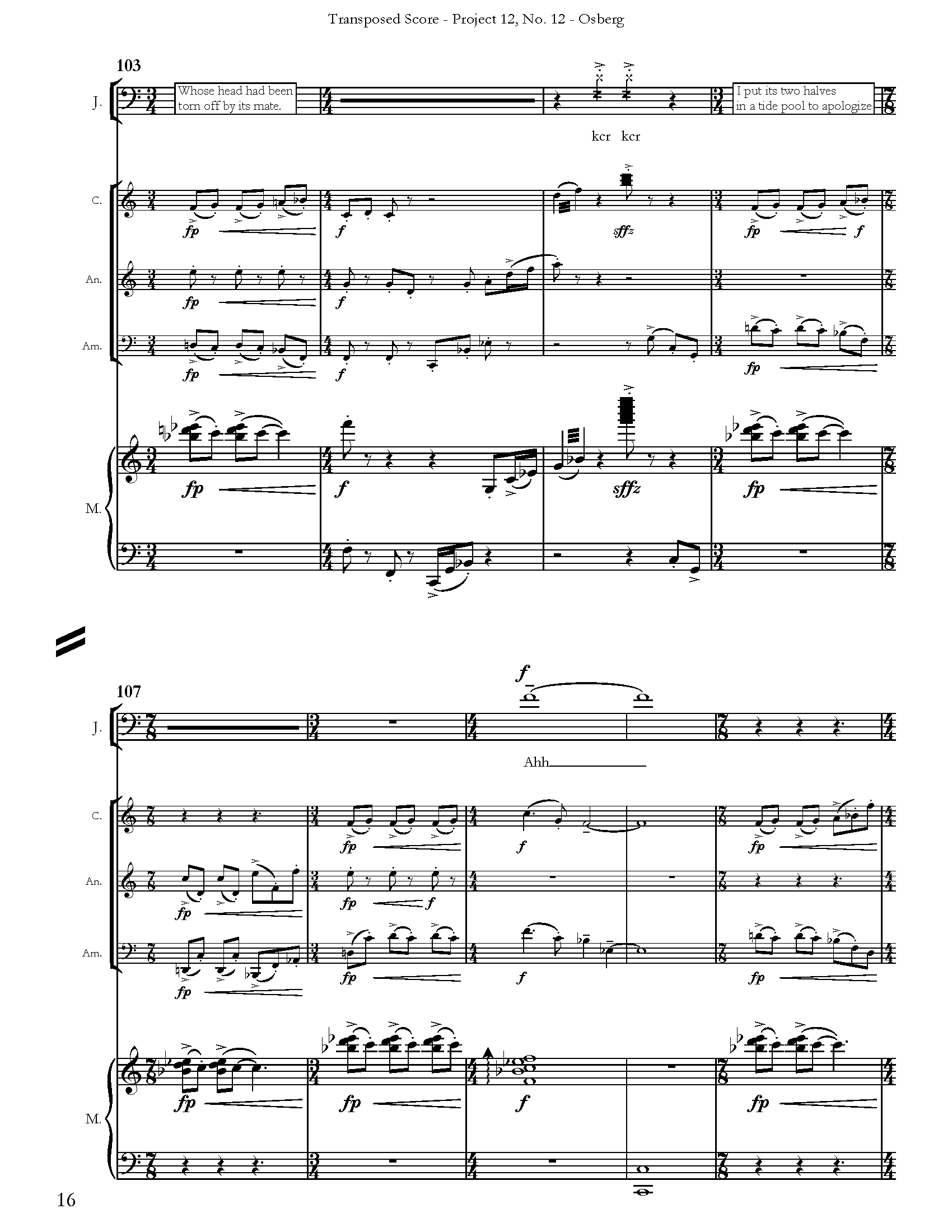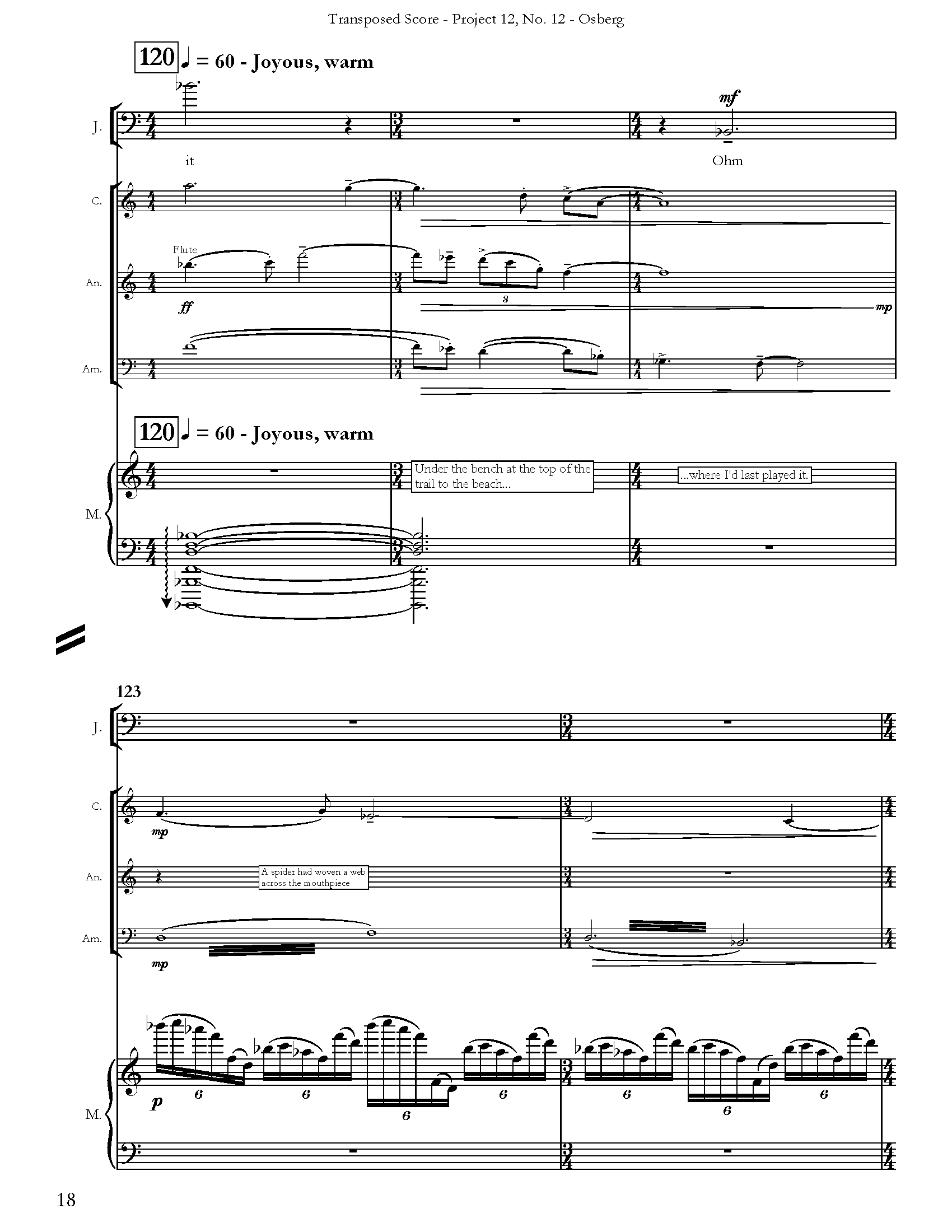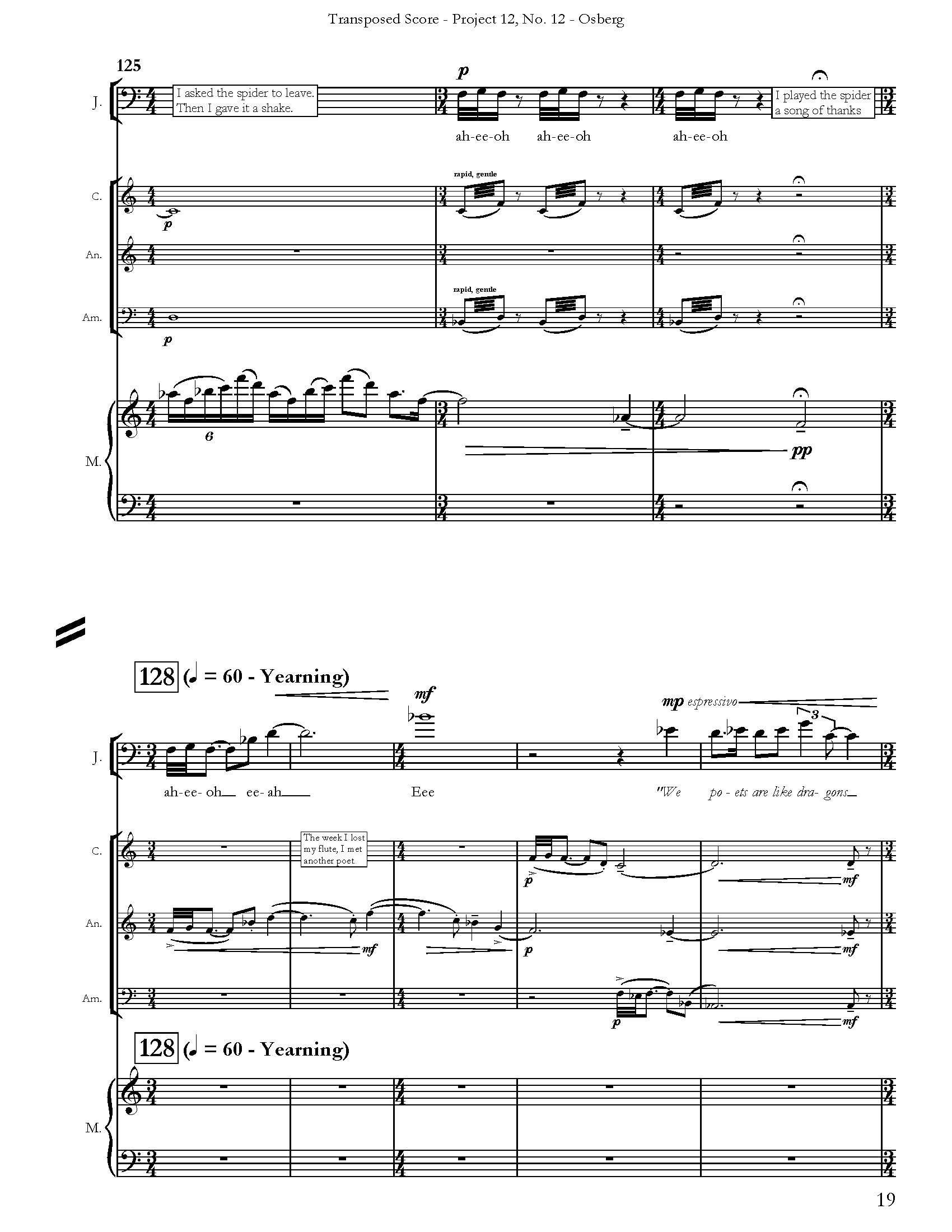Project 12: The Last Piece
My partner managed to take this stunning photo awhile back of Mount Hood - it seemed appropriate to end the series with a close-up of my favorite mountain!
Just a few weeks into 2021, and it is already proving to be a rather eventful year. I remember projects in middle school and high school where they asked us to write journal entries as if we were physically present for historic events—none of us guessed how absolutely exhausting it would be to live through so many of them at once. I hope this finds you all taking care of yourself and your loved ones, and that you get a chance to rest and recover!
Wrap-Up: Mouthpiece
I was really excited to end this commissioning series with a piece for my friend, a bass vocalist and composer, Justin Parish. When I was in my masters program, Justin and I lived in the same apartment complex for a year; we bonded over the sounds of the ambulance exit we lived next to, our rambunctious neighbors, and—of course—music. Justin has such a beautiful voice, both as a singer and as a composer, and is someone who is genuinely curious about the world and all it has to offer; I knew he would have an interesting project for us to collaborate on!
The ensemble was to be English horn, tenor sax doubling flute, bassoon, piano, and voice. Justin told me that the other ensemble members included classmates from our time at IU as well as a few of his former colleagues from Ithaca—I was elated at the chance to reconnect them! As a group of friends, they very rarely got a chance to perform all together, and really wanted a project in which they could experience a true collaboration. As we discussed plans for the project, he told me about a poem he had read recently—titled Mouthpiece—and asked for that to serve as inspiration for the work I would be composing.
The Text
An excerpt from “Mouthpiece” by Jennifer Lighty. You can read the full poem—along with some of Jennifer’s other work—in her collection, Bluebell: The Apocalypse Diary.
Mouthpiece is a poem by Jennifer Lighty, who gave us permission to do “whatever we wanted” with her text! While I normally work with my own text, her poem really intrigued me and captured my imagination. The text follows a speaker who lost their flute, and the emotions and experiences they live through during the week the flute is missing. Some of the imagery is natural (“…it was sunny, then rained. I saw huge waves, then the ocean laid flat again”), some of it more overt (“…I was angry about everything, so I argued with my boyfriend over silly things”), and some more abstract and ominous (“A red flower reached out its pot like a drowning woman”). All of these images are tied together with the line “The week I lost my flute,” and form a clear—though segmented—structure for the work. I saw a lot of opportunity for text painting and using different voice colors, and was immediately excited to start working!
Starting the Piece
It was important to Justin that he was able to use more than just his “bel canto” or classically-trained singing style—he has been singing a lot more musical theatre repertoire, and also has a huge array of speaking voices and vocal effects. It was also important to him that he not be a soloist with his friends simply acting as accompaniment; he wanted the voice to really feel like a member of the ensemble.
The English horn player, Catie McGovern, wanted a chance to try out a few multiphonics and loves playing in the low register. Andrew Loretz, the saxophonist who would also be doubling flute, also loves playing in the lower registers and hoped to have something dark and lyrical to play. The bassoonist, Adam Gruschow, wanted something pastoral and lyrical with sections of fun rhythms and fast hockets. Pianist Michael Wade didn’t have any specific requests, but was very excited to play something with a lush ensemble texture. Also, they mentioned that all of them could sing, and would be happy to lend their voices to the work as well.
With these requests in mind, I began by first listing ways to de-emphasize the voice part as a soloist. This is always a difficult task because humans have evolved to pick out the human voice from other sounds, so voice can be very difficult to hide! Having Justin sing on nonsense syllables (especially vowels, to avoid distinctive speech textures) and using vocal effects would help draw him into the background. Also, having Justin sing in a variety of different vocal styles (limiting vibrato can help the instrumental texture stick out), and splitting the text up throughout the ensemble would help de-emphasize Justin’s voice as a soloist—making his voice just one of many.
I also determined that I would lean in heavily on the naturally segmented and fleeting nature of the text, rather than try to fight against it. I felt it would be a great opportunity to explore quick jumps in textures and mood changes, and perhaps employ a few metric modulations!
Normally, I would also think about ways to make the piece as accessible as possible to a wide range of potential players, but—given the specific requests and skillsets involved—I gave myself permission to write very specifically for this group of musicians. While the end result is still a highly playable work, I know that I will most likely need to arrange the work for a slightly different/expanded instrumentation before it gets played again!
Excerpts
Below are some excerpts from Mouthpiece - the final entry in the Project 12 commissioning series!
In order to immediately establish the voice as part of the texture, rather than a soloist, I started with a tutti gesture that expands downwards—the voice performing vowel sounds and sustaining the second note, rather than the first or last. The piano ends the phrase with a simple octave, then picks up the flute motive from measure 3, cascading downwards to meet the other winds. The ensemble rises up once more, the flute acting as the leading role. The full ensemble swells, culminating in a large, rolled chord in the piano and a few final punctuations by the flute.
In measure 9, I give the flute time to switch back to the tenor sax. The English horn and piano kick off a punctuated, dance-like section, setting up the first arrival of the text—spoken, rather than sung. The piano and bassoon both jump down to the lower register, giving room to vault upwards before dropping down into a held chord (echoing the text “There were huge waves, / then the ocean was flat again"). The vocalist in this section shifts back to syllables, doubling the bassoon, while snippets of text appear throughout the rest of the ensemble—overlapping, and even appearing out of order.
The saxophone arrives in measure 27, kicking off the first “traditional” setting of the text. This moment is short-lived, however, as spoken sections of text are performed by other ensemble members. Here, what starts as an echo of the word “missing” develops into both “pollen on the breeze” (the piano carrying the melody into various octaves), and into “too much coffee” (the sixteenth triplets kicking off a metric modulation). Here, at measure 32, are some of the more extreme examples of text painting. In the poem, the narrator mentions drinking “too much coffee,” scratching at her poison ivy rash, and then trying to make up for these behaviors by doing “yoga on the beach.” The syllables in the voice mimic pained sounds, as the ensemble percolates like boiling water. The tremolo in the English horn and piano give a nervous tremor while the bassoonist simply states “poison ivy”—quickly followed up with the voice mimicking a scratching sound. The bassoon and piano return us to the percolating material as the word “coffee” is reiterated. Rather than having anyone literally say or sing the line “I tried to make up for it by doing yoga on the beach,” it is instead alluded to by the voice singing the word “Ohm” as the winds and piano sound tremolo gestures that ebb and flow.
Skipping ahead a bit, here at measure 48 I strip away the instrumental sound, using sharp outbursts of breath for accompaniment. Musically, this helps to clear the ear from the previous section, which was rather lush and thick. In terms of text, I thought these sharp, punctuating breaths were reminiscent of the quickened breath one feels when angry or upset. The “pollen” theme from earlier returns briefly in the voice (measure 56), and is subsequently chopped up and stretched out as the instrumentalists gradually return to playing. The playing is also short-lived, however, as large chunks of text overlap throughout the ensemble—with as many as four ensemble members speaking at once. In the poem, this section talks about trying to speak with someone who barely understands your language, pretending to understand when “really we missed everything.” By having the text overlap, the listener experiences that sense of frustration—only picking out a few words in the jumble of text.
The subsequent section recalls a memory from Paris and is set rather traditionally, so we’ll skip ahead to measure 78. Here we return to the dancing 7/8 material from the beginning, though now starting in a lower register. This allows me to set up the next few sections—first setting up some new material from measures 86 - 98, which sees lush lines from the winds, bouncy and dancelike punctuations in the upper register of the piano, and using both spoken and lyrical setting of the text in the voice. At measure 99, we suddenly get the return of the poison-ivy and coffee material—I do this because the vocalist sings “…my mind got in the way,” and this material previously appeared during a restless moment before (scratching at poison ivy, drinking too much coffee, one’s mind being distracted). This allowed me to create a very visceral connection musically between ideas in this highly segmented poem—connections that may not have appeared overtly in the text, but are there thematically. In measure 109, the tenor sax drops out, leaving the rest of the ensemble to carry the momentum forward to the big arrival at 120.
Here at 120, Justin rockets to his highest register (he has an incredible range, so this is definitely a “Justin” moment!) just as the flute returns. The winds cascade downward gradually, as the voice recites another “Ohm”—now accompanied by calm, smooth sustains rather than agitated tremolos. The piano material in 123 returns to a gesture that appeared earlier (in a section we skipped over); where before it was simply filler material, here it appears in a not-so-subtle text painting of the phrase “A spider had spun a web across the mouthpiece.” A few tremolos in measure 126 shake out the spider, now allowing the flute and voice to sing in unison octaves for the first time. As the English horn player states that they “met another poet,” the flute motive is passed to other instruments, culminating in a tutti texture in the winds to support the voice—now singing words again for the first time in almost a full minute.
To end the work, we return to the opening motive in measure 135, and the ensemble recalls the breathing gestures that appeared throughout the work (the tremolo notehead in 138, a gesture which appeared in a skipped-over section, is a shuddering exhale). Knowing that all of them could sing, I decided it would be a nice moment to have the ensemble end the work with the opening gesture, now in a more uniform texture. I went back and forth on the decision to end with Justin literally saying the word “speak” (it has been done before…a lot…), but ultimately I decided that the obvious solution is sometimes the appropriate one! I also think it serves as a nice transition texture between the sung text and the final exhale—a sigh of relief.
All in all, this was a really fun work to put together, and a great way to end this wonderful experience!
Wind-Up: So What’s Next??
With Week 12 finished (and Week 6 being expanded into a larger piece!), Project 12 is complete! It has truly been an incredible experience—starting the series with a work for a grandfather guitarist and his soon-to-be 5-year-old granddaughter pianist, working through some truly unique collaborations with Grand Circle New Music and Bassless Trio, writing for first-time commissioners and well-established professionals, working with people in my region and with collaborators from another country—this project has encompassed so many different types of ensembles, playing levels, and subject matter!
In addition to the artistic fulfillment I’ve enjoyed through this process, Project 12 also allowed me to sustain myself almost exclusively through commissions—and during 2020, of all times! When we went into lockdown this year, so soon after moving to Portland, I went through a real period of despair—wondering how I could possibly network and continue making art with every venue closing up shop for the year, and so many musicians out of work. That so many people—mostly people I didn’t know!—reached out to commission a project during such a difficult and uncertain time means more to me than I can fully articulate.
I never thought my life could be like this; spending my days writing music (or writing about writing music), and my evenings watching movies with my partner. Even if that changes in the future, I will be forever grateful to those who made this possible—who made these past months not only bearable, but truly wonderful.
I’m making plans for the next commissioning series and hope to formally announce it by the end of January. I have so many ideas coming out of this awesome series of collaborations, and am grateful for all of the inspiration, support, and joy Project 12 has given me. Thank you so much for keeping up with this chapter of my creative life—I hope to see you in the next!
Happy music-making, everyone!!



